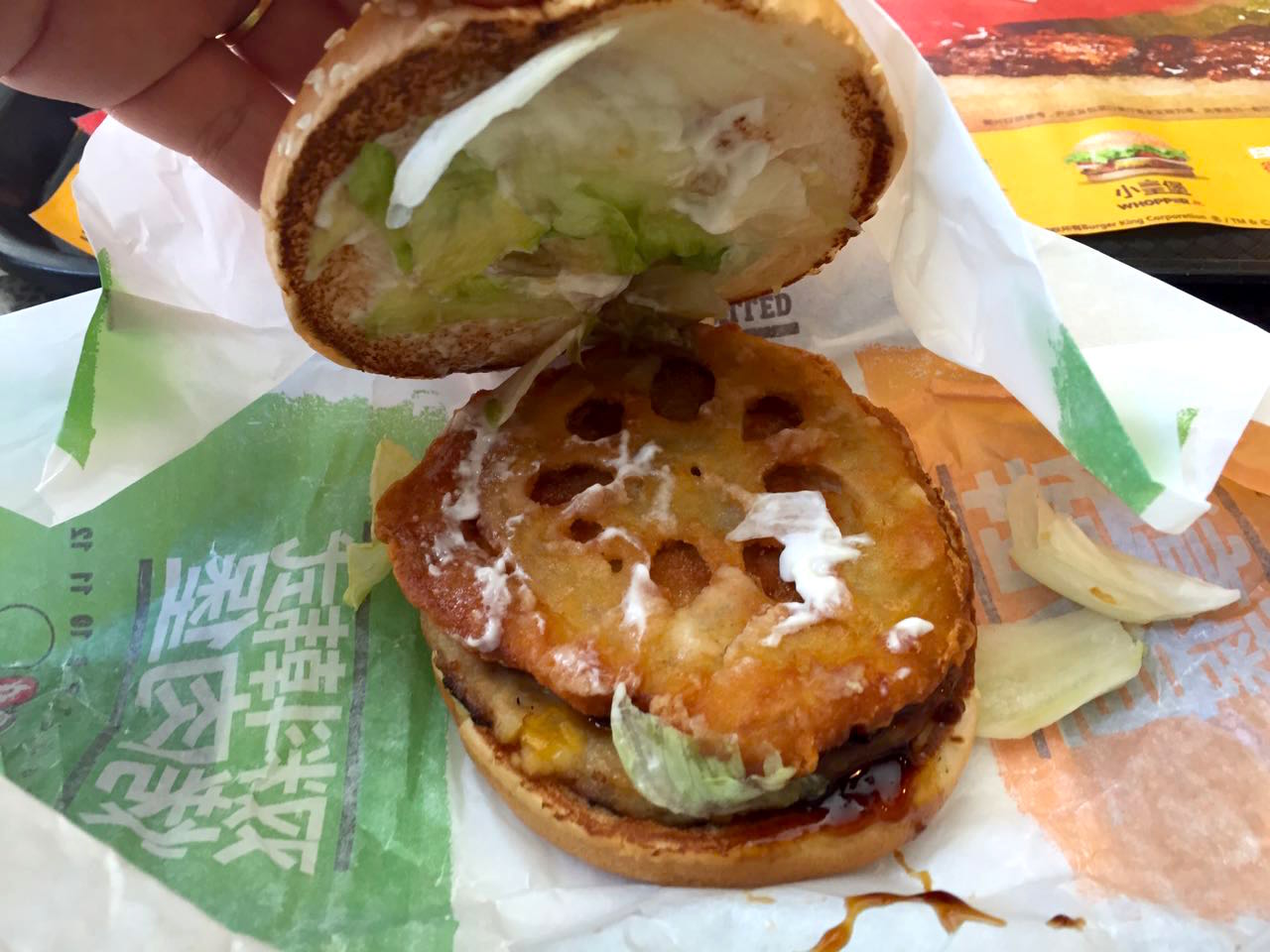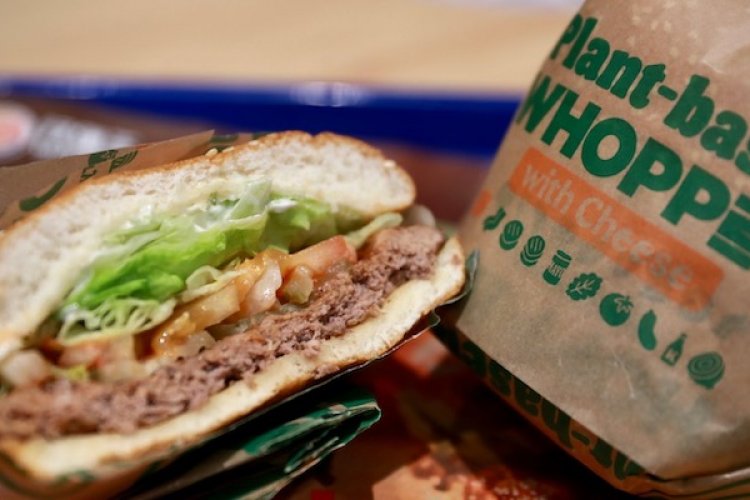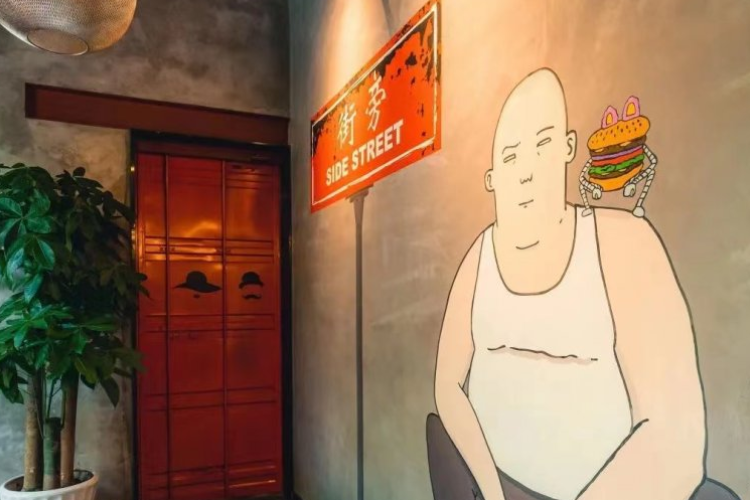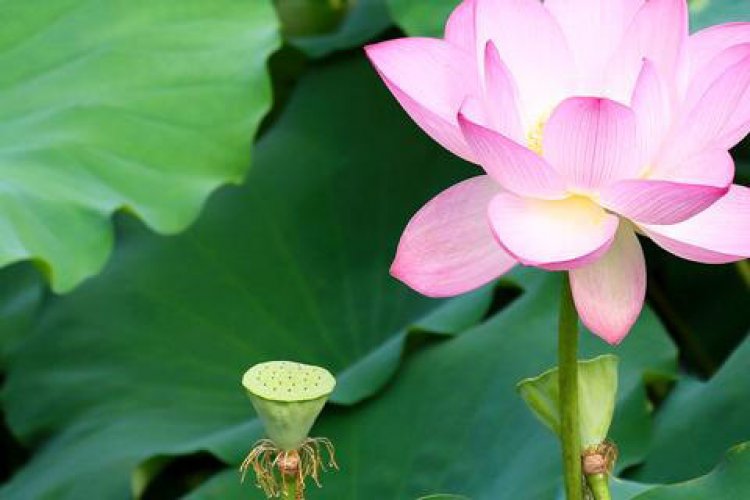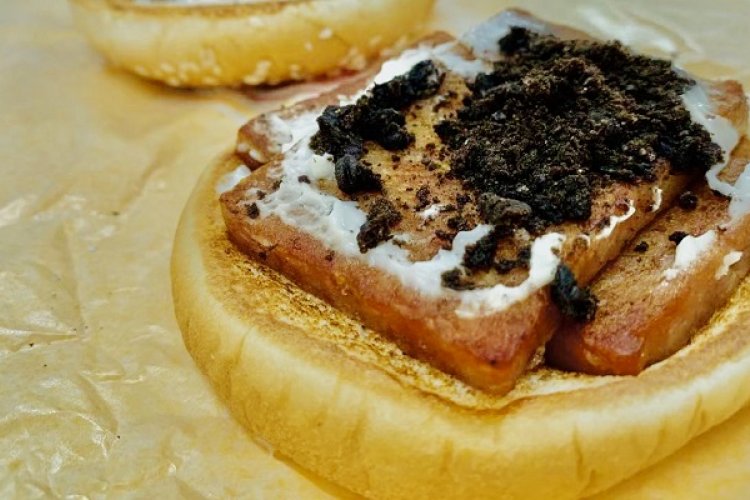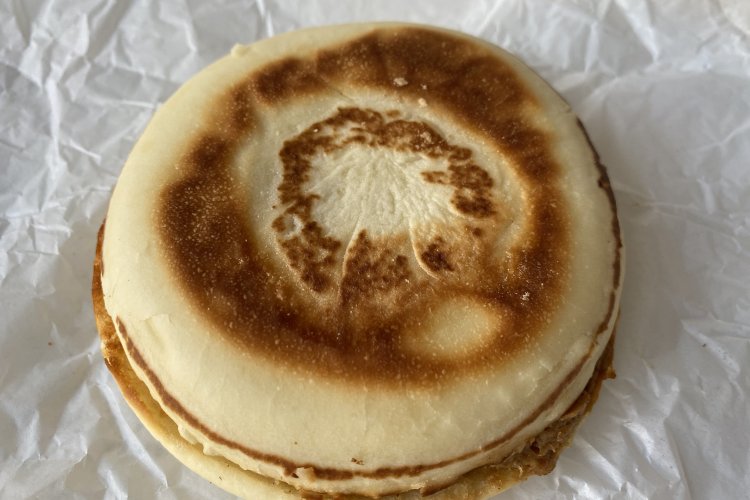Fast Food Watch: Burger King Get Down With a Lotus Root
Is there a more romantic food in China than the lotus? The lotus flower has long symbolized purity, as espoused by Buddhism, and the oldest proof of its germination was first discovered in a dried lake here 1,300 years ago.

Even Song dynasty philosopher Zhou Dunyi had this to say about the aquatic perennial plant in his "Thoughts on the Love of Lotus Flowers":
In this world there are many kinds of flowering plants, whether on water or land, that appeal to ones liking. Tao Qian in the Jin Dynasty alone devoted himself to the chrysanthemum. Since the early days of the Tang Dynasty it has been fashionable to admire the peony; but my favorite is the lotus flower. How stainless it rises from its slimy bed! How modestly it reposes on the clear pool? An emblem of purity and truth! Symmetrically perfect, its subtle perfume is wafted far and wide, while it rests in spotless state, something to be regarded reverently from a distance, and not to be profaned by familiar approach.
But it is the earthy, phallic tuber, submerged tantalizingly just out of sight, below the gently lapping water and arising from “its slimy bed” that is the true jewel in this sensual equation – the lotus root – and without which the beautiful pinks and whites of the flower would never bloom. Even whispering its name in Chinese – ou – is a dipping, yearning sound much like an exclamation a lover might make as if being caressed. And that’s exactly how I asked for Burger King’s newest feat of fat-bathed culture from the middle-aged lady at lunch time at BK’s The Place location (the Yaxiu joint doesn’t stock them), or at least I would have had I not got the tone wrong.

All of this epicurean delight has apparently not been lost on Burger King, BK, King of Taste who have whipped together a burger using this most treasured of vegetables. To completely deprive this hackneyed metaphor of any remaining titillation, the root is scooped from the deep fat fryer, and has been paired by the behind-the-scenes burger mods with your choice of a reconstituted pork or a reconstituted chicken patty. I know myself well enough by this point to opt for the former: sexy, debased, greasy pig meat, its subtle perfume wafting far and wide (RMB 23 for a meal).

Lo-and-behold the patty is even flecked with nubs of sweetcorn, which while not a wholly superfluous addition, giving a slight crunch to even out the fibrousness of the root, go some way to jamming up what could otherwise be unadulterated pig anus. Minus 1 fast food point.

The whole concoction is brought together with a dollop of sweet barbecue sauce and mayo, a combination that holds up well, unless you’re one of those weird Americans with a complete aversion to emulsified egg. Minus 1 fast food point for you.
All in all, Burger King might have actually pulled this one off and despite thoroughly robbing it entirely of its romance, perhaps lotus root does have a place in a sandwich just as much as it holds up in malatang and malaxianguo. However, whereas a single lotus plant can live for over 1,000 years, only time will tell if this concept will outlast September.
More stories by this author here.
Email: tomarnstein@thebeijinger.com
WeChat: tenglish_
Instagram: @tenglish__
Images: Margaux Schreurs, Burger King, wikimedia.org
Related stories :
Comments
New comments are displayed first.Comments
![]() Candy1988
Submitted by Guest on Tue, 08/30/2016 - 23:32 Permalink
Candy1988
Submitted by Guest on Tue, 08/30/2016 - 23:32 Permalink
Re: Fast Food Watch: Burger King Get Down With a Lotus Root
The price is reasonable。
The most traditional Chinese dish made with lotus root is 炸藕合 as I think.

There is minced pork or beef between the two pieces of lotus root.
Validate your mobile phone number to post comments.

